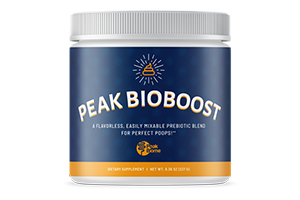Protein shakes are the easiest way to consume more protein. It is so simple to take, and it has no ill effects on our body. People take protein shakes as it helps build muscle mass and is even effective in shedding some pounds when consumed with a low carb diet. It is hard for athletes and gym lovers to fulfill their high protein requirement through a regular diet, so protein powder and protein shakes are the most commonly used supplement globally.
While protein shakes are a healthy option for everyone, they have some cons too. Too much protein intake in our body can cause frequent pooping, diarrhea, or constipation-like side effects. These are not direct side effects of protein shakes but occur due to low fiber content in protein shakes and lactose intoleance.
This article discusses whether protein shakes make you poop or it gives you constipation. We will also discuss the effect of protein shakes on your bowel movement.
Related Article: Does Pre-Workout Make You Poop?

What are protein shakes?
Protein shakes are the popular dietary supplement used globally. It is the combination of protein powder and water, milk, or any other liquid of your choice. People consume protein shakes to support their low protein diet. You can consume it safely as a part of your balanced diet.
Protein powder can be of two types – animal-based and plant-based. For this article, we will be focusing on protein powder coming from animal sources. These have high protein content in each scoop and are used most commonly by gym professionals and athletes.
Whey protein powder is the protein filtered from whey, a byproduct of the cheese-making process. Whey protein contains 20-30 grams of protein per scoop.
Whey protein from different brands comes with a variety of flavors and added sweeteners. Although protein shake does not negatively affect our health, it can trouble your bowel movement if you are lactose intolerant or not taking enough dietary fiber from your diet.
Let’s find out how protein shakes make you feel constipated and why they can cause diarrhea.
Related Article: Can You Drink Protein Shakes Without Working Out?
Protein shakes and bowel movements
There are no serious ill effects of drinking protein shakes. However, for some people, protein shakes can cause digestive problems like constipation or diarrhea. Constipation after drinking protein shakes are most common in people of all age groups. Diarrhea is also a side effect associated with protein shakes but is less common.
To understand the fact, let’s find out what is in the protein shakes which impact our bowel movements?
Low fiber intake
Consuming high protein while cutting back on the carbs could be one of the possible reasons for your gastrointestinal issues. Lack of fiber in your diet while on high protein intake makes your gut constipated. Most protein powders are animal protein like whey protein or other commonly used proteins. These do not have fiber at all.
The fiber in your diet helps your gut in moving things around. Fiber draws water into the intestine, making a bulk of stool. This bulking effect makes stool easy to pass through the colon. It improves our bowel movement and overall digestion.
While drinking protein shakes, make sure to add veggies and fruits to your diet too. This will ensure you are taking enough fiber to help your digestion. Protein shakes are in no way a substitute for a healthy diet. You should always emphasize natural sources of protein in your diet.
Artificial sweetener
Another thing that can impact your bowel movement is an artificial sweetener in your protein shakes. With hundreds of protein powder brands in the market, most of them are loaded with added flavors to make them taste better. It contains a good amount of added sweeteners, stevia, and sugar alcohol. These are linked with symptoms associated with gastrointestinal problems like diarrhea or constipation. Make sure you are taking pure protein and no added artificial flavors or sweeteners.
Too much calcium intake
Calcium is extremely important for our body. It helps strengthen our bones, heart health, and muscle functioning.
One ounce (28 grams) scoop of whey protein powder contains approximately 20% of our daily recommended calcium requirement. If you take multiple whey protein shakes each day, this probably means you are intaking too much calcium.
Too much calcium can slow down your bowel movement. It may trigger constipation, severe diarrhea, and abdominal pain.
Why do protein shakes cause constipation?
Protein powder and protein shakes are generally recognized as safe. However, too much of it can cause digestive issues like constipation. As discussed before, most protein powders are of animal-based sources, and one such example is whey protein powder. They do not contain fiber at all, so that they can impact your bowel movement resulting in constipation.
Another reason protein shakes cause constipation is that they are dehydrating in nature. Too many protein shakes will increase the risk of dehydration.
Our kidney has to function more than usual to filter out the waste products produced during protein digestion. This results in more frequent urination. As you are excreting more water through pee, your body gets dehydrated. Our body needs to be hydrated, as it helps in vital body functioning.
Dehydration causes our gut to absorb water from our stool, making it dry and hard. This condition leads to constipation and a hard time passing stool.
To avoid constipation, make sure to keep yourself hydrated by drinking more water along with protein shakes.
Why do protein shakes give you diarrhea?
Diarrhea is one of the less common but possible side effects of drinking protein shakes. Lactose is the main carb found in whey protein. Some people may not be able to digest lactose properly. This condition is called lactose intolerance. Lactose intolerance happens when our body doesn’t produce enough lactase enzymes, which primarily helps in lactose digestion.
When they consume protein shakes, lactose does not get digested in the gut. The undigested lactose moves through our large intestine, where they interact with bacterias and cause digestive issues like bloating, gas and diarrhea.
Lactose intolerance is a very common condition. You can help it by avoiding dairy products. To minimize any such digestive discomforts, you can switch to whey protein isolate. It is a more refined whey protein powder with very little lactose and fat in it. Alternatively, you can also try plant-based protein shakes.
Conclusion
Protein shakes are a great way to fulfill your daily protein requirement. It is safe to drink and has several benefits. While there are a lot of good things to discuss protein shakes, some cons exist too. Drinking too much protein shakes could cause constipation and diarrhea. Commonly protein shakes do not have fiber content, which makes them the number one reason for constipation. People suffering from lactose intolerance should also avoid protein shakes. It may increase the chances of diarrhea and stomach pain.










